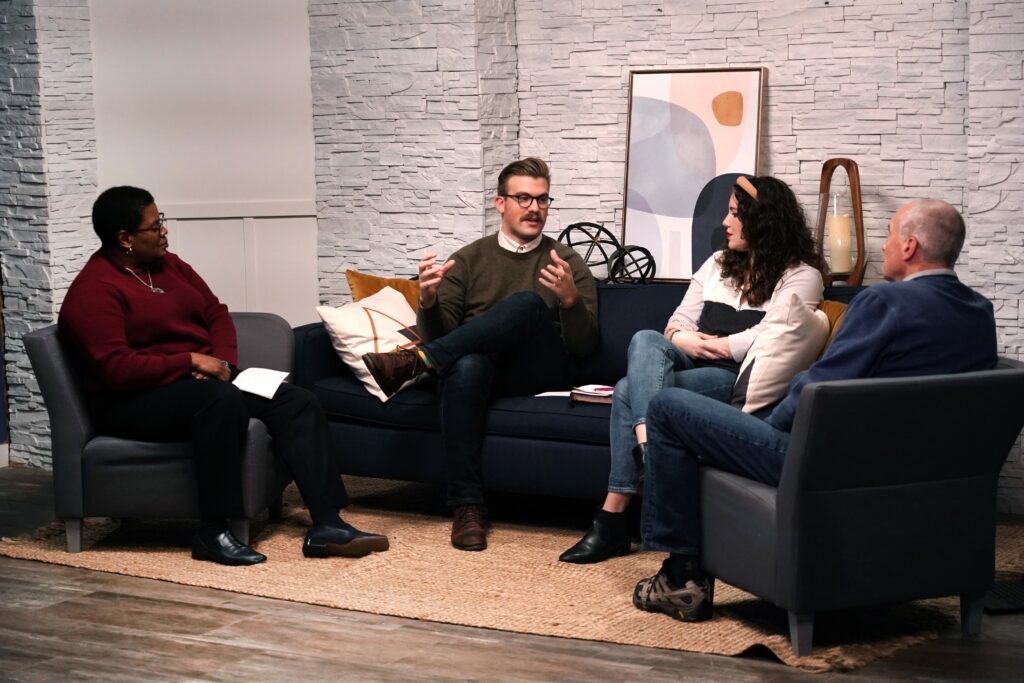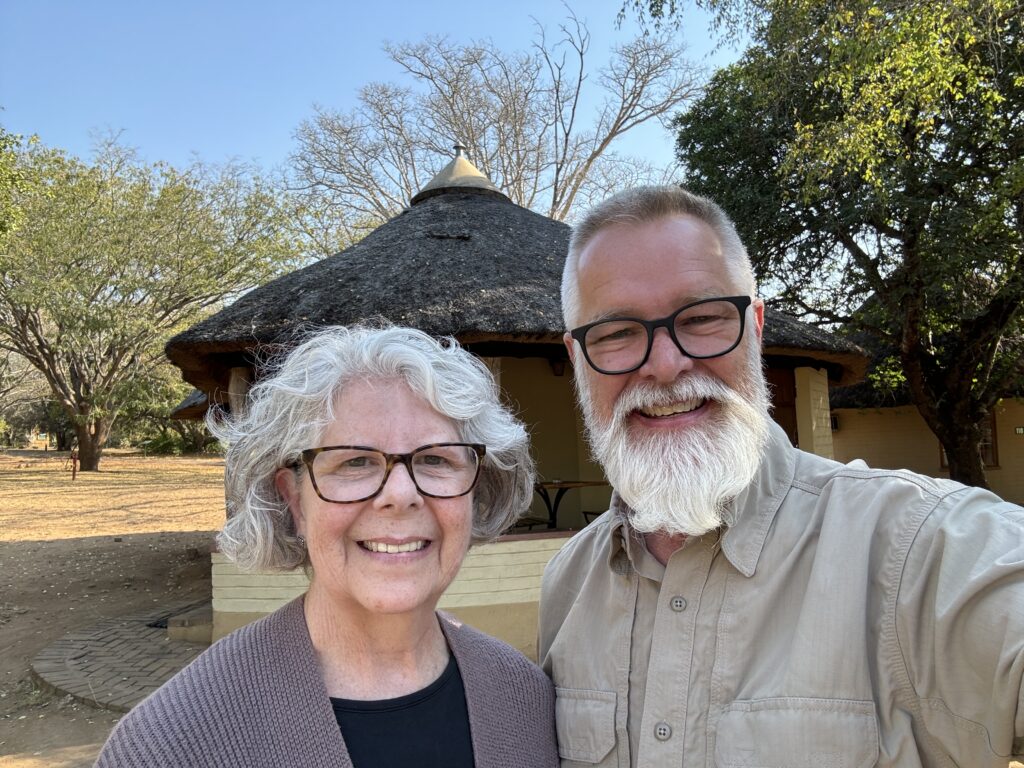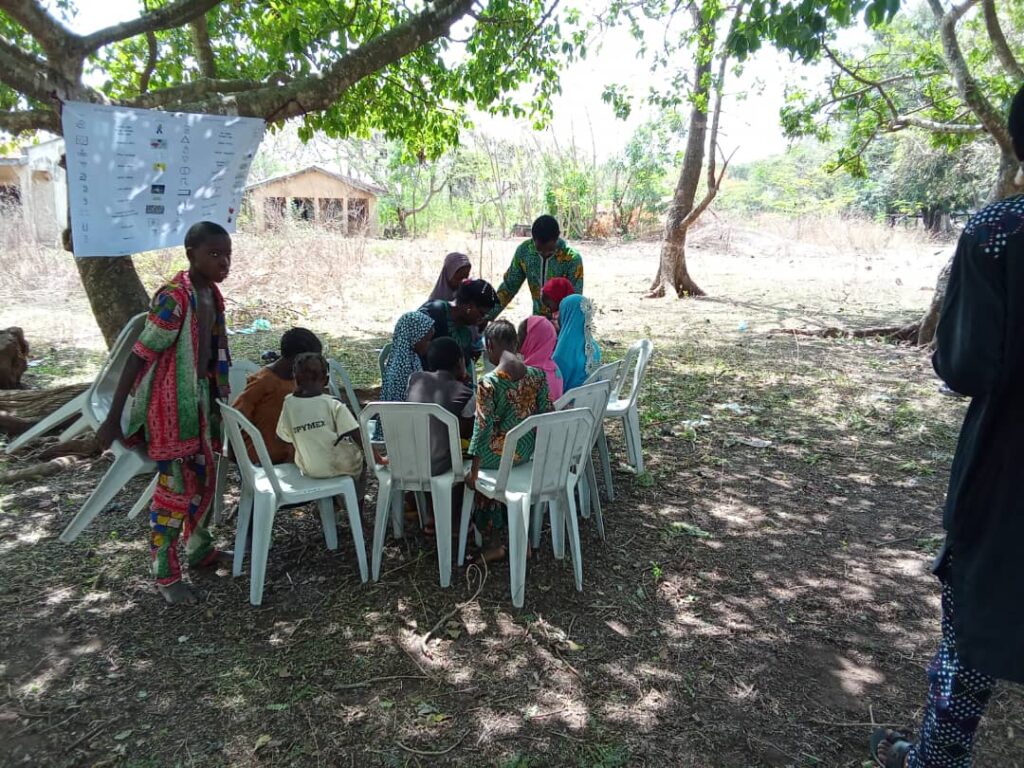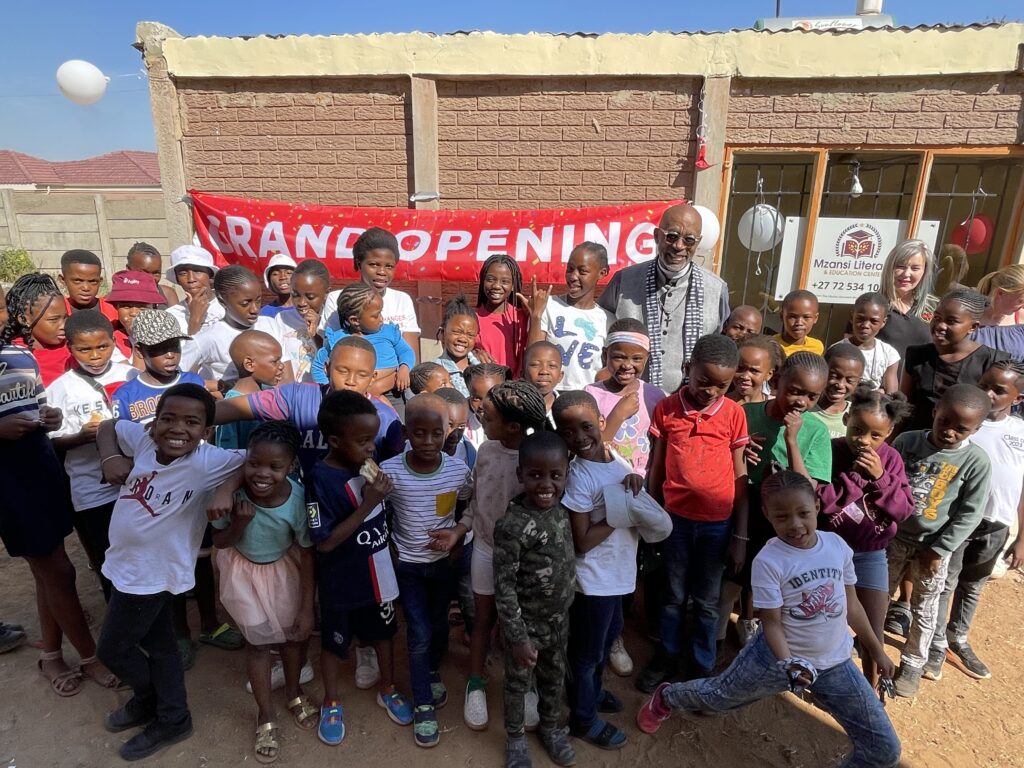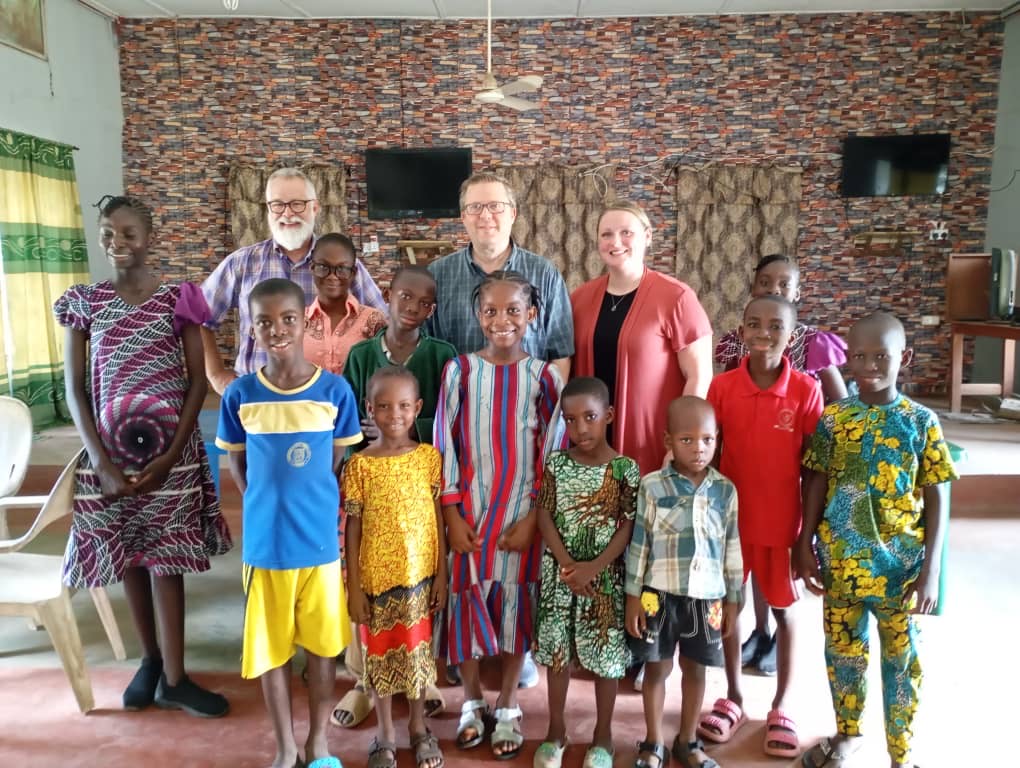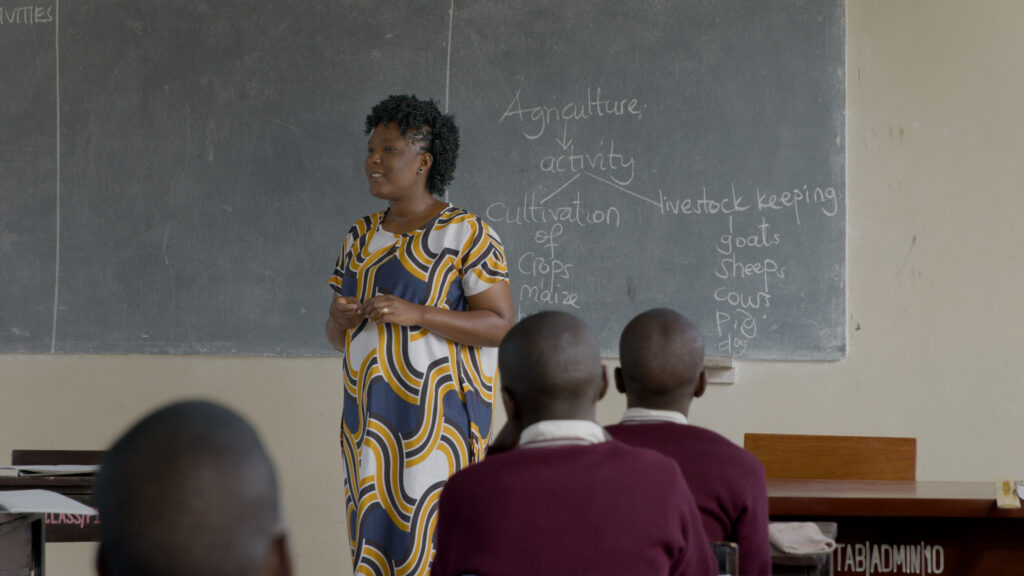A Conversation on Unity in God’s Family
Are Baby Boomers jaded and arrogant? Are Gen Xers overreactors? Are Millennials frivolous and hard to please, not wanting to work hard?
We examined these stereotypes through some intergenerational conversations to understand how each person views the challenges they face and the opportunities they have.
As Christians, we desire to pass our faith to the next generation, but oftentimes we struggle. Sharing together and truly listening helps us all appreciate how different generations receive, reflect, and respond to how the Holy Spirit reveals God’s Word to them.
A group from Our Daily Bread Ministries met to discuss these ideas and find unity across generational differences. Here’s a look into that conversation between Chriscynethia Floyd (Our Daily Bread Publishing), Brian Hettinga (Discover the Word), Brenna Holsclaw (Reclaim Today) and Trevor Tarantowski (Reclaim Today).
What generational differences have you noticed?
Brian: Each generation is impacted by the previous generation who is trying to help them, wanting to help, but not knowing the impact of their “helpful” choices. Baby Boomers and Gen Xers were pushed out of the house: college was the way to get our foot in the door of the professional sphere. Our parents were prescriptive: we had to do X to succeed.
Trevor: Millennials were raised to slow down our pace, to stay home longer. When we went to college, we incurred a 3-years’-salary debt, which means it takes us longer to get financially stable. And—we have “spokespersons” on social media who are not an accurate portrayal of the generation. That’s not who we all are.
Brenna: A lot of things are taking longer for us—in the ’90s and early 2000s when we were growing up, things were a little bit easier and shinier. We were raised to thrive in that setting, where it was good for people to take their time and to follow their dreams, and now we are facing repercussions for doing what we were raised to do.
Chriscynethia: When we were young, my mother made me and my siblings work in the same textile manufacturing business that she worked in—so we would know what it was like if we were to stay in our hometown and work.
My sister, who is an attorney now, says she knew in the first hour that she wasn’t going to stay there. When you think of an older generation sometimes there’s wisdom and vision they have that you can’t possibly have because you don’t have their experiences. They want their kids to avoid hard times—take a different path than they did.
Why is it hard to live united with those who are part of God’s family?
Chriscynethia: In a way, our church is divided: politics, cultural wars, the world of sinfulness has really seeped into some of the thinking about what God has for each of us. I think we can’t possibly comprehend the fullness of who God is. So folks make it up. What I’ve witnessed over the last few years is, people just make up who they think God is and who He is for me. And that has created a division, a misrepresentation of the fullness of God.
Trevor: Yes, and there are also so many other categories by which we identify ourselves. When I think of myself, I think of “I’m a Michigander,” “I’m a Lions fan,” “I work at a non-profit.”

But my identity as a Christian doesn’t always feel like the most basic identity. There are all these other things that people are putting at the forefront: this is who I am. Some of that has to do with the breakdown of denominations. To say “I’m Presbyterian,” “I’m Methodist”—those things don’t matter as much now as they did. To some extent, I think that’s good.
But, it doesn’t seem like there is the same collective identity as a community of Christians. The fractioning into individual identities makes some people think, “How does this church serve me?” rather than, “This is what it is to be a part of the church.”
Brenna: And it’s hard because people feel either you have to bulldoze differences to be able to get together or you have to create walls to protect what’s within and not to let whatever difference enter the church at all.
I can see why people do these things—why you want to protect or open things up. I wonder if we err too much one way or the other. When perhaps there is a more unifying and loving way to live within differences while still respecting those things which perhaps should stay constant. Who is to decide which is which? That’s above my theological pay grade.
Brian: Yes, we have to figure out what is essential to keep constant. As a dad, what helps me think about unity is looking at my kids. They did things differently than I did. But I will do a lot to keep that relationship alive. I give them grace that I tend not to give to people at work, people in my neighborhood, people who don’t think the same as me. But if I can use that family image to think of others as my kids, it helps me try to give them grace.
I’m not great at it all the time, but I try to look at them in a way which gives them the opportunity to be diverse while we’re still being unified in that bond of loving each other in Jesus’ name.
Chriscynethia: There’s this question about faults and the acceptance of differences. I go back to the passage of Scripture in John where it says “Who here is without sin? Who would cast the first stone?” None of us.
It’s not the case for any of us. I want to be forgiven for my sins, and I want to be accepted even for my mistakes. Part of being a family of God is to understand we’re all different. We all have our own faults. We need grace. And that’s generation to generation to generation.
Want to hear more? Watch another conversation on this same topic in the video below!

